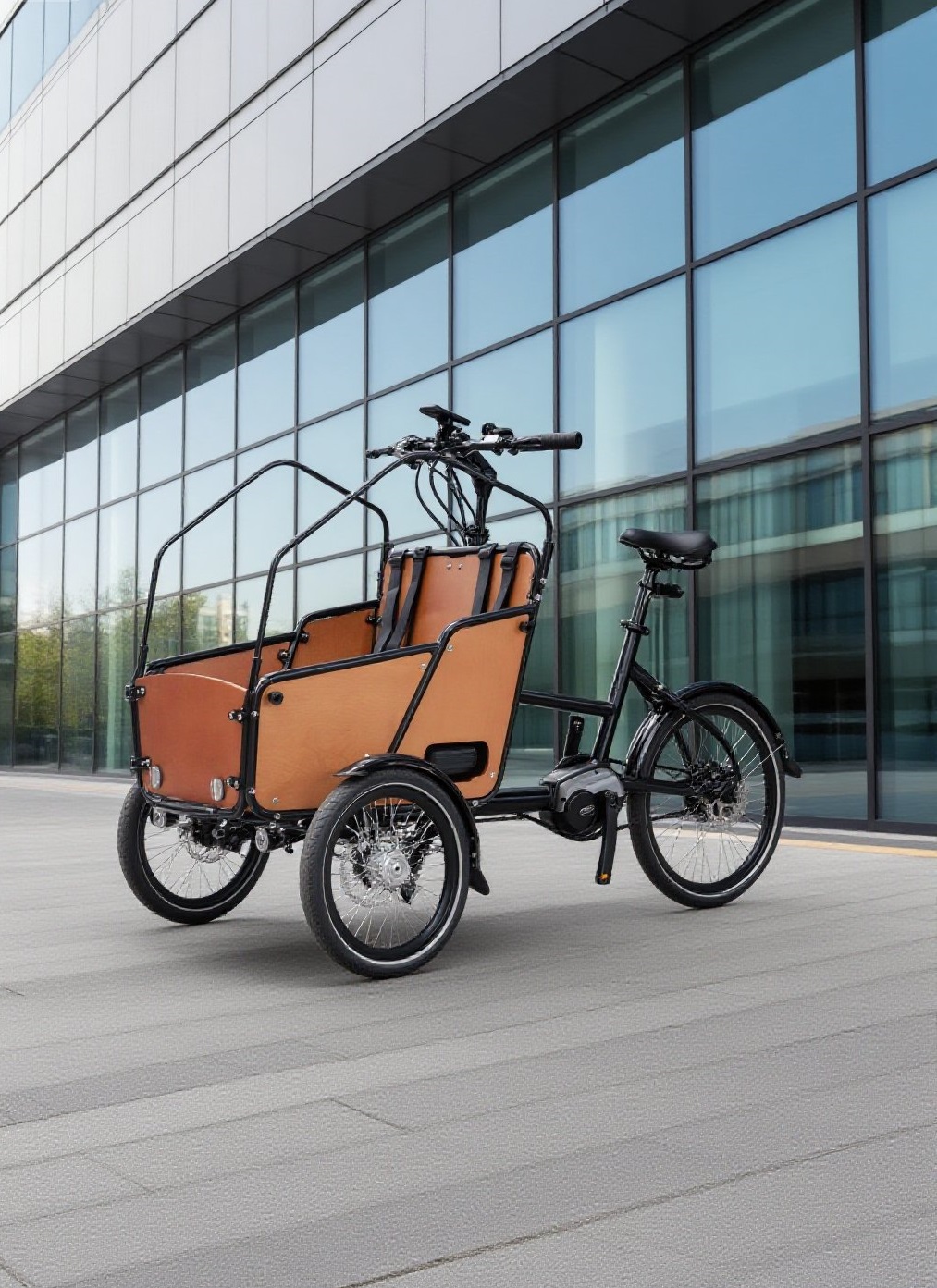As urban delivery and smart mobility continue to reshape modern logistics, cargo bikes have emerged as a crucial solution for sustainable, efficient, and low-emission last-mile transport. However, with greater adoption comes greater technical complexity — and that's where the CAN BUS protocol proves its value.
At Luxmea, we understand that seamless communication between vehicle components is critical for performance, reliability, and scalability. The CAN BUS protocol enables this integration, positioning smart cargo bikes as reliable assets in high-demand logistics networks. This article explores how CAN BUS technology is shaping the future of electric cargo mobility and what it means for businesses that rely on intelligent transport systems.
What Is CAN BUS and Why Does It Matter in Cargo Bikes?
CAN BUS, or Controller Area Network Bus, is a communication protocol designed to allow microcontrollers and electronic devices within a system to talk to each other without a central host computer. While originally developed for the automotive sector, its reliability, speed, and scalability have led to widespread use in various forms of modern transportation — including cargo bikes equipped with CAN BUS protocol.
In a cargo bike system, CAN BUS enables essential components such as the powertrain, battery management systems, display units, sensors, and controllers to exchange real-time data. This creates a synchronized system architecture that supports smarter diagnostics, optimized control, and consistent performance — essential attributes in today's high-demand delivery environment.
As businesses rely increasingly on cargo bikes for complex operations, having a robust communication backbone like CAN BUS is no longer optional — it’s a fundamental building block for future-ready logistics infrastructure.
Meeting the Demands of a Growing Urban Logistics Market
The global shift toward sustainable urban mobility has triggered a surge in demand for intelligent, zero-emission delivery vehicles. Businesses, municipalities, and service providers alike are looking for reliable solutions to reduce emissions, optimize routes, and comply with green regulations.
This evolving landscape brings with it a new set of challenges:
How can delivery systems stay operational with minimal downtime?
How can data from vehicles be used to improve business decisions?
How can vehicle systems be scaled and upgraded over time without full replacements?
The CAN BUS protocol plays a central role in addressing these questions. By standardizing communication between internal components, CAN BUS makes it easier to monitor system status, implement predictive maintenance, and integrate with external fleet management systems.
These capabilities are especially important for businesses looking to expand operations and manage larger cargo bike fleets. For insights into how this can align with your operational model, we invite you to contact us.
The Luxmea Approach: Smart Integration for Better Business Outcomes
At Luxmea, we prioritize intelligent design in all our cargo bike business solutions. Our integration of CAN BUS technology reflects our commitment to offering systems that are adaptable, connected, and built with future scalability in mind.
Rather than focusing on feature lists or technical specifications, our focus is on delivering cargo mobility platforms that meet the operational needs of businesses. Whether it’s optimizing your delivery routes, improving vehicle uptime, or enhancing safety performance through integrated diagnostics, CAN BUS supports these goals by acting as the central communication hub of your vehicle’s ecosystem.
Each business we work with has unique logistics workflows, and our team is here to help you assess how best to incorporate smart systems into your operations. For a tailored discussion based on your fleet or service requirements, please contact us.
Benefits of CAN BUS in Cargo Bike Applications
Adopting cargo bike equipped with CAN BUS protocol brings a wide range of operational advantages, particularly in high-volume or time-sensitive delivery environments:
System-wide coordination: Real-time communication allows critical systems to work in sync.
Improved diagnostics: Potential issues can be identified and addressed faster, reducing maintenance delays.
Modular integration: New sensors or subsystems can be added without major redesigns.
Data-driven operations: Access to consistent system data supports smarter route planning and energy use.
These benefits directly address many of the top concerns for businesses using cargo bikes at scale — from uptime and performance to compliance and safety.
For information on how these benefits translate into business outcomes, we encourage you to contact us and connect with a member of our solutions team.

A Future-Proof Investment in Urban Mobility
Cities around the world are rapidly evolving to support greener, smarter logistics frameworks. Businesses that rely on cargo bikes need solutions that can keep pace — not just today, but over the long term. The integration of CAN BUS protocol is a crucial step toward future-proofing your delivery fleet and staying ahead in a competitive market.
At Luxmea, we are committed to supporting this evolution by providing advanced systems built around reliability, connectivity, and intelligent design. By focusing on seamless integration and operational adaptability, we ensure our clients are ready for tomorrow’s logistics demands.
Whether you are in the early stages of exploring cargo bike systems or ready to scale your fleet, our team is here to support you. Let’s discuss how our approach to intelligent transport can help drive your business forward.
Explore more about our capabilities at luxmea or take the next step and contact us for a customized consultation.


